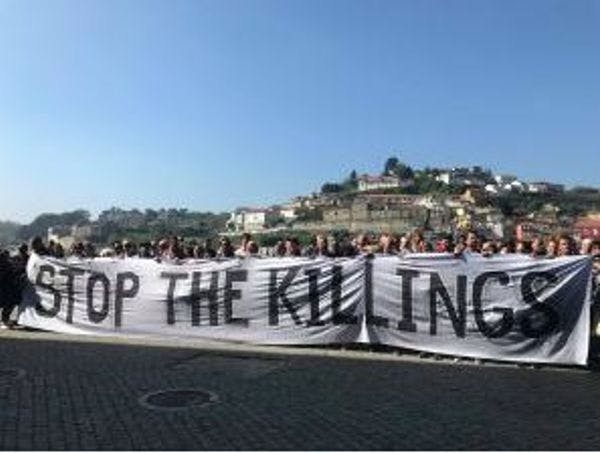Flickr, (ARR) IDPC
The future is intersectional
Over the last few months, two important conferences on drug policy and harm reduction took place in Europe: activists were sharing best practices and tools at the International Harm Reduction Conference in Porto, whereas researchers were presenting their findings at the annual conference of the International Society for the Study of Drug Policy in Paris. The two conferences shared the topic but crucially did not form joint advocacy efforts. What drug policy movement needs now is to connect these two worlds. Here are my highlights from both conferences.
- Porto
The past Harm Reduction conference like probably always was the place where every person is not just tolerated but welcomed with a warm hug. Coming from Russia, where harm reduction is not really a mainstream, it felt like a huge opposition gathering. The topics I followed were drug policy, human rights and providing funding for harm reduction.
In accordance with the slogan of the conference — “people before politics” — quite a lot was said about human rights. We, as a society, tend to blame individuals and trust the system to fix them, but it is in fact more fair to blame the system and the state, and give individuals the tools and autonomy to change it. Changing the existing drug policies is a political process, as well as citizen discussion, so we need to use the existing mechanisms to push the governments further. For example, professor Rodrigo Uprimny who is also one of the members of the UN Committee on Economic, Social and Cultural rights spoke about the “Berlin wall” between Geneva as the home of human rights and Vienna as the host of the Commission on Narcotic Drugs. “We should build the bridge and make drug policy a human rights issue,” he said. The first step was done by the Chief Executives Board of the 31 UN agencies which, right before CND, adopted a common position on drug policy that endorsed decriminalisation of possession and use of drugs.
As Nanna Gotfredsen from the Danish Street Lawyers said in her talk, by documenting the harm caused by repressive drug policies we can easily show what putting politics before people means. If only we could do the same with stigma and discrimination that these policies entail. People who use drugs are criminalized, stalked by the police, and at the same time have a hard time accessing legal aid almost everywhere in the world. There was a special session at the conference aimed at discussing the practices of paralawyers, or street lawyers, as a solution to this issue. Such programs of peer help to victims of human rights violations or violence have been implemented in Denmark, Indonesia, and Russia, among others, and they were proven to be effective even in such severe circumstances as in the case of the Philippines.
For people coming from countries with draconian drug policies, like myself, the Portugese officials said a lot of groundbreaking things like ”criminal justice is never good for issues related to drug use” coming from the police representative or everyones favorite from a member of parliament Ricardo Baptista-Leite ”harm reduction and love have one thing in common they both should be unconditional”. To get to the world with a human-rights-based drug policy, we should encourage politicians to meet with people who use drugs, and, more generally, make people living at the margins of the community visible to the community and be helpful not only to people who use drugs but also to politicians and the police, ”allow them to take credit and praise them.”
